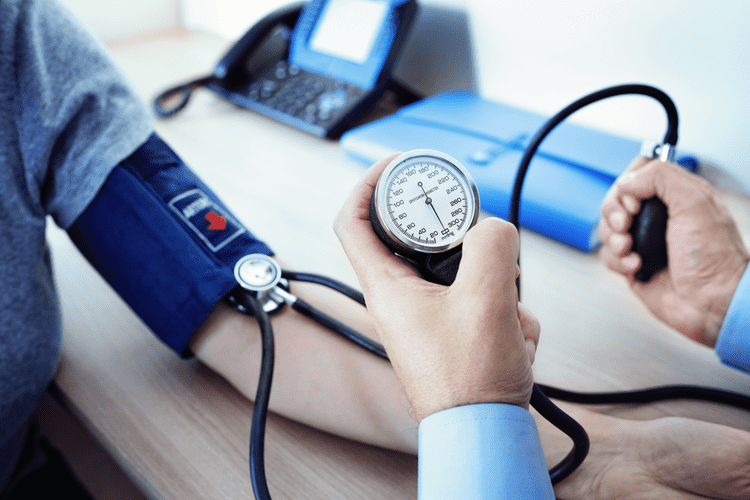Blood pressure is the pressure the blood exerts as it pushes against the artery walls. However, further research indicates alcohol can actually cause hypertension. We created three SoF http://bogmark.com.ua/medicanova1/ tables to show the certainty of evidence and the summary of effects on outcomes of interest (SBP, DBP, and HR) for high (Table 1), medium (Table 2), and low doses (Table 3) of alcohol.
Review Manager (RevMan) [Computer program]
Research suggests that drinking 550 milliliters (ml) of water within 2 hours of waking up and another 550 ml 2 hours before bedtime may help reduce blood pressure, but more research is needed. Some research suggests that drinking 550 milliliters (ml) of water within 2 hours of waking up and another 550 ml 2 hours before bedtime may help reduce blood pressure. A 2020 review found that consuming 30 g or more of alcohol appears http://mpilot.ru/items1-view-11223.html to increase the heart rate for up to 24 hours. Blood pressure, meanwhile, tends to fall for the first 12 hours but then increases. Too much alcohol can raise blood pressure and weight, increasing risk of a heart attack, stroke and type 2 diabetes. Senior Cardiac Nurse Christopher Allen finds out more from Professor Sir Ian Gilmore, Consultant Physician and Gastroenterologist at Royal Liverpool University Hospitals.

Berg 2005 published data only
On average, drinkers consume 32.8 grams of pure alcohol per day, and beer (34.3%) is the most consumed alcoholic beverage (WHO 2018). In the United States, 14 grams of pure alcohol is considered as one standard drink or one unit, and the maximum daily limit for men and women is four and three drinks, respectively (NIAAA 2017). Exceeding this limit increases the risk of cardiovascular, hepatic, and nervous system disorders (Bellentani 1997; Fuchs 2001; Gao 2011; Lieber 1998; McCullough 2011; Nutt 1999; Welch 2011). Also, multiple studies have found associations between consumption of alcoholic beverages and specific cancers (Kushi 2012; Seitz 2007). Abuse of alcohol resulted in approximately 3 million deaths worldwide and 132.6 million disability‐adjusted life years (DALYs) in 2016 (WHO 2018). There is likely a dose‐response effect of alcohol on BP, as the effects of alcohol appeared to last longer with higher doses.
Parker 1990 published data only
When blood pressure decreases, these receptors help minimize how much the blood vessels stretch to increase blood pressure. Similarly, when blood pressure increases, these receptors increase the stretching of the blood vessel walls in order to decrease blood pressure. Hypertension, or high blood pressure, is a very common condition worldwide. The danger to your health if you heavily drink whiskey can outweigh the potential benefits that you may gain.
- Elevated uric acid levels could mediate this due to alcohol consumption.
- Cutting down on your alcohol intake will decrease your risk of hypertension.
- However, modulatory influences related to drinking patterns, genetic susceptibility, nutritional factors, ethnicity, and gender also many play a role (Piano and Phillips 2014) (figure 4).
That’s because alcohol can weaken your immune system, slow healing and make your body more susceptible to infection. “Some people think of the effects of alcohol as only something to be worried about if you’re living with alcohol use disorder, which was formerly called alcoholism,” Dr. Sengupta says. Since the kidneys excrete a tenth of ingested alcohol, toxicity in these organs is expected, which could enhance inflammation and renal damage in hypertensive patients. However, chronic kidney disease appears to be less common among drinkers. “Alcohol consumption might affect left ventricular diastolic properties, even in nonalcoholic patients,” say the researchers. Neurohormonal disruptions may mediate the mechanisms of harm in alcohol consumption.
- We also found moderate‐certainty evidence showing that alcohol raises HR within the first six hours of consumption, regardless of the dose of alcohol.
- She has counseled hundreds of patients facing issues from pregnancy-related problems and infertility, and has been in charge of over 2,000 deliveries, striving always to achieve a normal delivery rather than operative.
- A 2023 report found that drinking too much alcohol regularly, exceeding 30 grams per day, can significantly increase the risk of developing high blood pressure.
- Another serious health problem that comes from heavy use of alcohol is physiological dependence [2].
- Participants in those studies consumed alcohol regularly during the study period, whereas in our systematic review, we included only studies in which participants consumed alcohol for a short period.
- Bad cholesterol and triglycerides can clog your arteries, while good cholesterol helps to keep them clear.
Mean difference (MD) from placebo with 95% confidence interval (CI) was the outcome measure, and a fixed‐effect model was used to combine effect sizes across studies. Keep in mind that alcohol contains calories and may cause weight gain. It may affect the level of the medication in the body or increase side effects. Heavy alcohol users who cut back to moderate drinking can lower their top number in a blood pressure reading (systolic pressure) by about 5.5 millimeters of mercury (mm Hg) and their bottom number (diastolic pressure) by about 4 mm Hg. The plant-based antioxidants in whiskey may help maintain a healthy chemical balance in your brain. Research shows small amounts of whiskey — especially aged varieties — increases our activity in the brain’s GABA neurotransmitter, responsible for things like nervous system function and memory.

Retterstol 2005 published data only
There are also a number of opportunities to expand on the research, including understanding more about how alcohol intake influences blood pressure among women. Keeping blood pressure within a healthy range can reduce the https://rufact.org/blog/2011/dec/31/samyie-ochevidnyie-otkryitiya-2011/ risk of adverse health outcomes. Many factors can increase someone’s risk for high blood pressure, also known as hypertension. However, researchers are still seeking to understand the full impact of certain risk factors.
- Methodological differences between studies might have affected measurement of the reported outcomes.
- Aside from slightly lowering blood pressure, whiskey also has other potential benefits to lengthen your lifespan.
- Hypertension leads to an increased risk of other health problems, including stroke, heart attack, and heart disease.
How does alcohol affect my heart?
The review concludes by suggesting several promising avenues for future research related to alcohol use and CV disease. The magnitude and direction of the effects of alcohol on blood pressure depend on the time after alcohol consumption. Moderate‐certainty evidence shows that acute consumption of medium to high doses of alcohol decreases blood pressure within the first six hours and for up to 12 hours after alcohol consumption. For times greater than 13 hours, high doses of alcohol consumption increased blood pressure. Low, moderate, and high alcohol consumption increased heart rate within the first six hours.
We calculated and reported mean difference (MD), with corresponding 95% confidence interval (95% CI). We included adult (≥ 18) participants of both sexes without any restriction on their health condition. Calories from spirits are essentially the same but whiskey has no carbohydrates or sugar.


